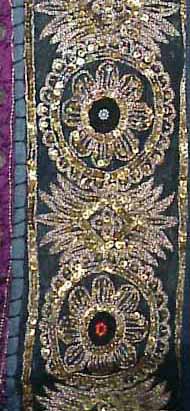 |
Introduction by FWP
What is the cause of all this bustle
and war I hardly know myself, and, at all events, it is too long to make
the subject of a letter; I must therefore refer you to the papers for it;
but I have heard from old officers that for the last twenty years the Company
have been anxious to establish themselves west and north of the Indus.
It is not likely, therefore, now that they have such an opportunity, that
they will let it slip , so that perhaps we may be quartered there for the
next two or three years. How it will turn out I know no more than the man
in the moon: a soldier is a mere machine, and is moved by his superiors
just as a chessman by a chess-player. Should there be any skrimmaging,
our men are in high spirits, and will, I think, soon make the Ameers put
their pipes in their pockets. Ours is the first European army that has
been on the Indus since the time of Alexander. (-- Letter I)
Thus writes Thomas Holdsworth to his father, in the first of a set of lively,
evocative letters home; twelve of them are exactly transcribed, while Letter
Nine is merely summarized, since his father has lost the original.
The source of this work, as of so many, is an etext by *Project
Gutenberg*. I have broken up some very long paragraphs into shorter
ones, and have fixed a very few OCR errors and punctuation problems, and
inserted one or two editorial comments in square brackets. For the Appendix
I've merely hooked up the Gutenberg version.
Thomas Holdworth's letters are vivid and readable, but they're not gems
of eloquence, or literary masterpieces, or full of philosophical reflections
on the nature of war and so on. This makes them even better as case studies:
what they are full of is information about the hardships of travel in Sind
and Afghanistan; the details of military life; the reaction of soldiers
to battle; the cultural as well as military clashes with local tribesmen;
the effects on the ground of political wheeling and dealing conducted at
higher levels. As further food for thought, these letters could well be
read in conjunction with the letters of Dean Mahomed (1759-1851) [site],
who also willingly fought to further the territorial ambitions of the East
India Company.
From Alexander's troopers to Thomas Holdsworth and his companions--
how much has changed, and how much has remained the same? "A soldier is
a mere machine," says Thomas Holdsworth, "and is moved by his superiors
just as a chessman by a chess-player." In some general sense that's clearly
true-- but in important ways, as his story shows, it's not true at all.
Much of what the soldiers do depends on their own mood, and their own will.
It matters a great deal whether "the men are in high spirits" or not--
and also, how they behave when things are going badly. Why are Tom Holdsworth
and his friends so ready to endure all kinds of risks and hardships, to
kill, to die-- in order to further the East India Company's murky political
intrigues? Is it for glory, for adventure, for loot, for patriotic zeal,
for later career advancement? Tom's father sees it largely in social class
terms: he writes, in the conclusion to his introduction, of "that high
sense of honor so peculiarly characteristic of our service" and "that acknowledged
distinction between the officers and the privates" that is so conducive
to "true discipline." But how far do such explanations really take us?
These letters invite us to reflect.
Fran Pritchett
July 2006
|

